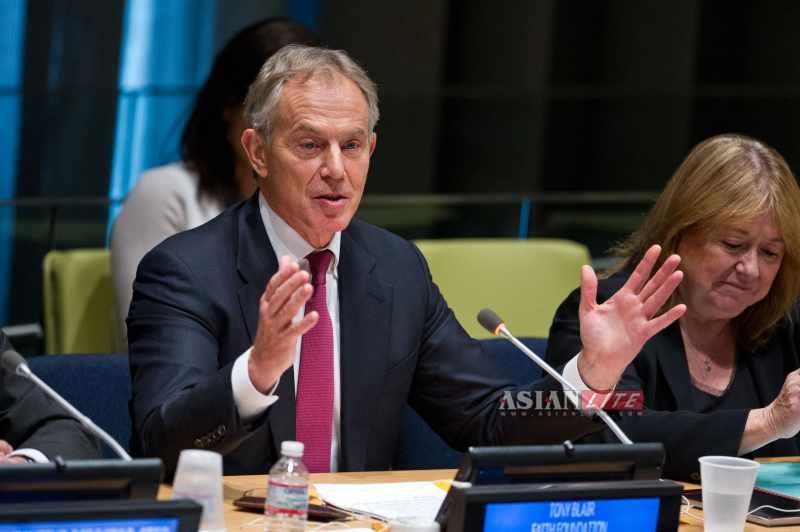Toy Blair, former British prime minister, said Britain has a great opportunity to lead a debate and build alliances among heads of government on the European council to create a long term “manifesto for change” that can end the cynicism and rejection of the European Union.

In a call for the elected heads of government to seize the initiative and assert their authority over the unelected commission, he said in a speech to the CBI in London that “the new approach should be for the council representing the heads of government to set out a clear, focused and strong platform of change for Europe.
He acknowledged the EU’s federalist origins no longer held validity, and the European public still believed in the nation state, adding that most EU leaders wanted Britain to remain in the EU.
“I mean a proper programme – almost like a manifesto for change – that is sufficiently precise that afterwards the commission knows exactly what it is supposed to do and has the full support of the council in executing it,” the Guardian reported.
In making his call for the council to assert its authority, he made no direct criticism of David Cameron’s negotiating stance but argued the Conservatives needed to lift their ambitions beyond a narrow-gauge negotiation designed to benefit the UK national interest.
“The crucial point from the perspective of Europe’s future is that we ensure that the British ‘issue’ with Europe does not disable us from playing our part in the larger question. This will require us to be careful in framing the argument for change in Europe in a way that builds alliances for the good of Europe as a whole, including the UK, not in a way that satisfies simply a narrow-gauge dispute between the UK and the rest of Europe.”
He also warned that an exit from “the principal stage of the world” would leave “the play and the actors to continue without the UK”.
Directing his attack on Ukip, he said the answer to the white working class in Britain threatened in the labour market by Polish immigrants was not to shut down the labour market, but to give them skills. Anxieties about migration were best addressed through clear rules and order, such as identity cards, not by feeding prejudice, he said.
Blair said the coming EU debate was about “more than about the repatriation of certain competences and rules. It has to be a debate elevated to a Europe-wide level, with Britain playing a leading role in the reform of Europe, not just a negotiation of Britain’s terms of membership. It has to be about what is good for Europe as well as what is good for Britain.”
He said last month’s election results across Europe were a wake-up call to Europe and to Britain.
He said the results in France and the UK “cannot be ignored. They point to a deep anxiety, distrust and alienation from the institutions and core philosophy of the Europe.”
Those who said the result showed overall “a pro-European majority were being dangerous and complacent”.
“Even ardent supporters of Europe think there has to be change. Whatever the correct interpretation of last week’s vote, it was not a vote for the status quo.”
He said the pace of change had upset electorates, and voters now had seen in plain view the way in which membership of the euro could determine the future of nations’ spending plans and policy.
“The pain of countries adjusting to changed reality and making deep cuts in public spending but without the flexibility of adjusting also the exchange rate, has been profound and, in many ways, the surprise has been that the outcry has not been greater. But even those of us outside the eurozone have been deeply impacted by what is happening inside it, and have seen a set of European institutions at once more visible and more under siege.”
He added there was a feeling that “Europe does too much of what it need not do, and too little of what it must do, and you have the perfect confluence of dissatisfaction that seems to define Europe today”.
Yet he argued the broad rationale for Europe was stronger than ever, but there was “a disjunction between the governing vision of Europe and its operating reality”.